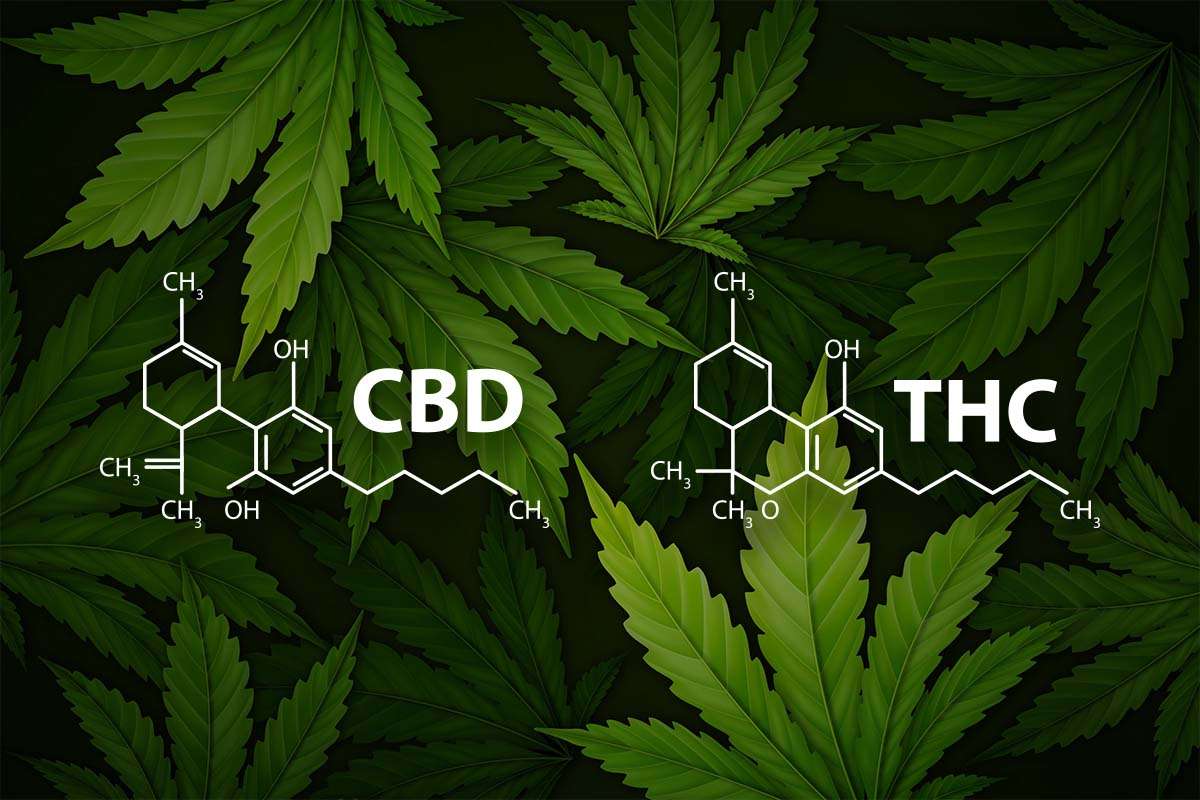CBD and THC are two active ingredients extracted from Cannabis Sativa plants. Incorporated into the preparation of various body products and some edibles, they are becoming increasingly popular due to their therapeutic properties. Despite the growing attention to the sector, however, the two substances are subject to different regulations. CBD and THC do not cause the same effects on the human body and, therefore, the laws regulating their marketing and use for medicinal and recreational purposes are different.
After an initial in-depth look at cannabidiol (CBD) and tetrahydrocannabinol (THC), we will explore in detail what are the main characteristics that distinguish them, and then move on to a discussion of the main pros and cons associated with both substances. Once we have achieved a good level of knowledge, we will move on to discover the regulations in force in the UK and America.
What is CBD and what are its characteristics?
Cannabidiol (CBD) is extracted from hemp and it is largely known and used in edible, body and skin care products. Due to its beneficial properties, it has become a popular natural treatment for various physical and psychological ailments, often preferred for its fewer side effects than conventional drugs. This success has stimulated a vast production of CBD-containing items, including gels, oils, lotions, lubricants, gummies, supplements and beverages, offering consumers multiple options.
CBD acts as a painkiller, anti-inflammatory, anxiolytic, and helps combat insomnia and skin irritations. It is also chosen by couples seeking to improve their sex life, as it can reduce stress and improve mood. In addition, it may have positive effects against convulsions and migraines. Its growing popularity is due to its many beneficial properties.
Despite its success, there is one important aspect to consider. Many CBD products contain traces of tetrahydrocannabinol (THC), the psychoactive element of cannabis. It is essential that the amount of THC is less than 0.2% to be legal, but it is still important to pay attention to its presence. This threshold is considered safe for health as it does not produce an intoxicating effect.
The growth of the CBD market is rapid, with more and more consumers incorporating it into their routines. The absence of psychoactive effects and lack of addiction are among the reasons for its success. However, it is essential to dose it carefully and follow the instructions to ensure safe and effective use.
-
Product on sale
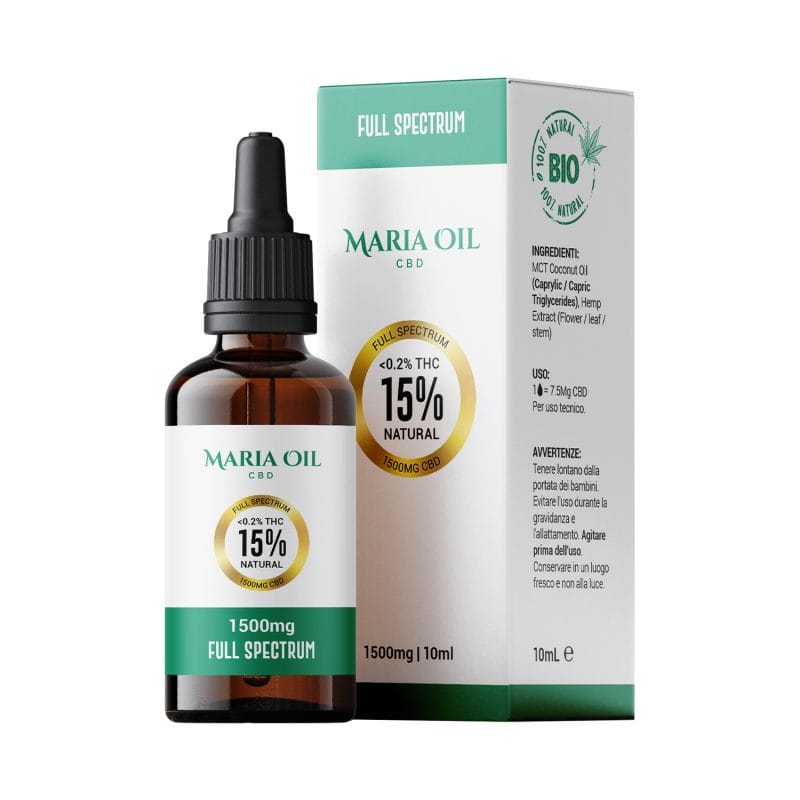 CBD Oil 15% (1500mg) Full SpectrumPrice range: £31.20 through £51.20From 1,71 €/gr
CBD Oil 15% (1500mg) Full SpectrumPrice range: £31.20 through £51.20From 1,71 €/gr -
Product on sale
 CBD Oil 25% (2500mg) Full SpectrumPrice range: £47.20 through £67.20From 2,24 €/gr
CBD Oil 25% (2500mg) Full SpectrumPrice range: £47.20 through £67.20From 2,24 €/gr -
Product on sale
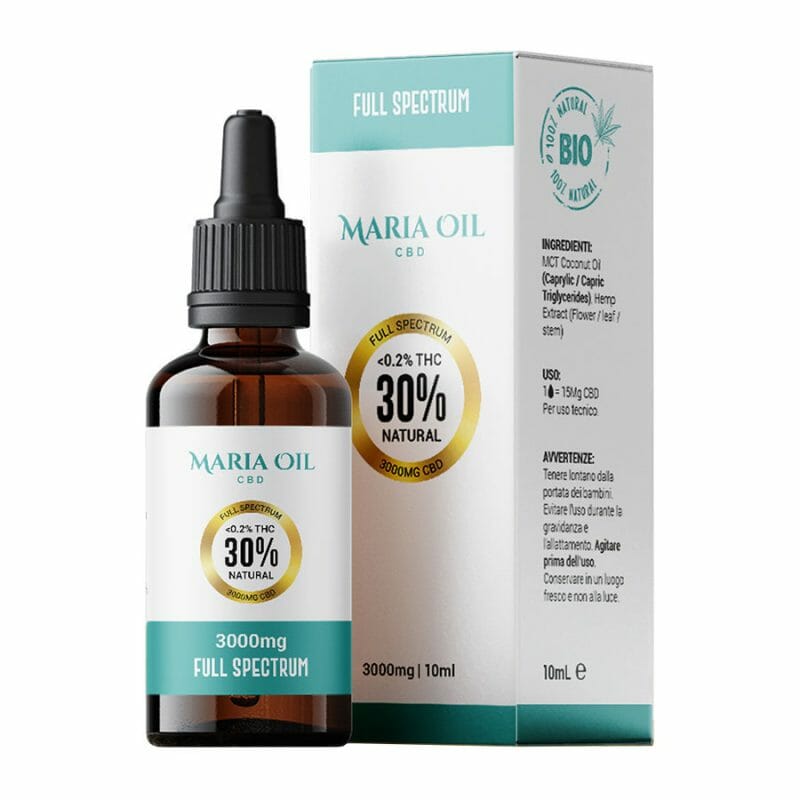 CBD Oil 30% (3000mg) Full SpectrumPrice range: £55.20 through £75.20From 2,51 €/gr
CBD Oil 30% (3000mg) Full SpectrumPrice range: £55.20 through £75.20From 2,51 €/gr
What is the most prominent side effect of CBD?
Like any active ingredient, CBD can generate undesirable effects. These vary from individual to individual and can be influenced by the dosage and the quality of the product used.
One of the most common symptoms associated with CBD is drowsiness or a feeling of tiredness, especially with high doses. Other possible side effects include changes in appetite, dry mouth, diarrhoea, low blood pressure and dizziness.
However, it is important to note that the World Health Organisation considers CBD to be safe and well tolerated when taken in the recommended doses. Adverse effects found in studies were rare, mild and temporary. Reducing the dose or stopping taking the product usually resolves such symptoms. It is essential to consult your doctor before using CBD to treat disorders, especially if you are taking other drugs, as interactions may occur.
What is THC and what are its characteristics?
Tetrahydrocannabinol (THC) is an active ingredient mainly extracted from cannabis, usually comes with a rather negative reputation as it is the main psychoactive compound of this plant, responsible for the release of dopamine in the brain. Excessive consumption of THC can lead to drug addiction as habitual cannabis users tend to increase their doses more and more to replicate that ‘high’ feeling, creating a health risk condition. These risks are responsible for the bad reputation that surrounds THC.
Scientific studies, however, have shown potential therapeutic use of both THC and CBD. Both substances have pain-relieving and antiinflammatory properties, and THC can be prescribed as part of medical marijuana in some countries. The benefits include reduced pain and nausea related to cancer treatments, as well as relief from stress, insomnia, migraines and tremors.
Despite its therapeutic benefits, the repeated abuse of THC carries important health risks and can lead to addiction. It is crucial to carefully monitor consumption to avoid this. The side effects include increased heart rate, dry mouth, memory loss, red eyes and slower reaction times.
It is therefore important to look for a balance between the potential benefits and associated risks, avoiding excessive consumption that may lead to addiction and health problems. But as we mentioned before, in legal weed the limit is low precisely to ensure the safety of consumers and to avoid getting high and addicted.
Main differences between CBD and THC
THC and CBD, although they both can be found in the cannabis plant, have very different characteristics and effects on the human body. Let’s look specifically at the main differences between CBD and THC.
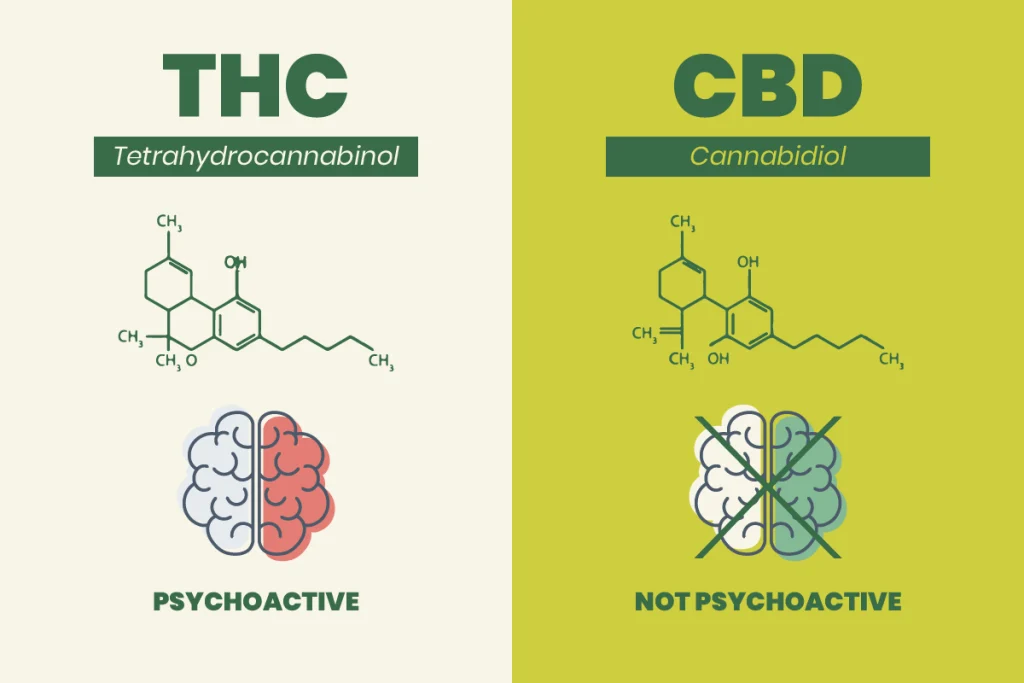
Chemical composition and psychoactivity
THC is known to be the main psychoactive component of cannabis, responsible for the ‘high’ effect associated with recreational consumption of the plant. This effect is due to its ability to bind to CB1 receptors in the brain, releasing dopamine and generating a feeling of euphoria.
The biggest difference between CBD and THC is that CBD does not produce psychoactive effects, as it interacts with the receptors of the endocannabinoid system in a different way, without binding directly to CB1 receptors. This characteristic makes CBD an ideal candidate for therapeutic applications, as it does not significantly alter an individual’s state of consciousness.
Therapeutic effects
Both cannabinoids have demonstrated potential therapeutic benefits, but their effects and applications differ. THC has been used to treat conditions such as chronic pain, nausea and loss of appetite, often associated with serious diseases such as cancer or HIV/AIDS.
CBD, on the other hand, has been studied for its anti-inflammatory, anxiolytic and neuroprotective properties. As we have already mentioned, it is used to treat a variety of conditions, including epilepsy, anxiety, psychotic disorders and inflammation.
Legality
The legality of THC and CBD varies greatly depending on the jurisdiction. Due to its psychoactive effects, THC is subject to stricter legal restrictions in many countries. In Europe, it must be less than 0.2%.
CBD, however, is generally considered legal in many parts of the world, provided it is derived from hemp varieties with low THC levels. Currently, there are no legal limits as there are for THC.
Safety and side effects
Side effects of THC may include altered perception, difficulty concentrating, impaired motor coordination and impaired short-term memory. These effects make THC less desirable for some patients, especially when used in high doses or for long periods of time.
CBD is known to have a very high safety profile, with generally mild side effects such as dizziness or dry mouth. This makes it an attractive treatment option for those seeking the benefits of cannabinoids without the psychoactive effects.
The different CBD:THC ratios
A balanced ratio such as 1:1 is ideal for those who seek the medical benefits of CBD and also desire the mild euphoric effects of THC. These strains tend to be less psychoactive than unbalanced strains.
There are also extreme ratios such as 0:1, where only THC is present and therefore has a psychotropic effect, or 1:0 where CBD is very potent and has a great effect on mood.
Ratios with a high CBD content, such as 2:1, 10:1 or even 20:1, are preferable for those seeking relief for anxiety, inflammation or pain, without experiencing an intense high. The higher the CBD ratio, the less intense the psychoactive effects of THC will be.
Conversely, products with a higher THC ratio, such as 1:2 or 1:10, are better for users seeking powerful psychoactive effects of THC, with the possible added benefit of pain relief or reduced anxiety. These ratios may be preferred by those with a higher tolerance to THC.
The concept of the ‘entourage effect‘ suggests that THC and CBD work in synergy to enhance each other’s therapeutic properties while minimising potential adverse effects. This interaction between the compounds is one of the main reasons why the specific CBD:THC ratio in a product is so significant.
When selecting a cannabis product, it is essential to consider personal needs and desired results. The ideal ratio can vary widely from individual to individual and what works for one person may not work for another. It is always recommended to start with a lower dose and gradually adjust the ratio based on personal experience and comfort level.
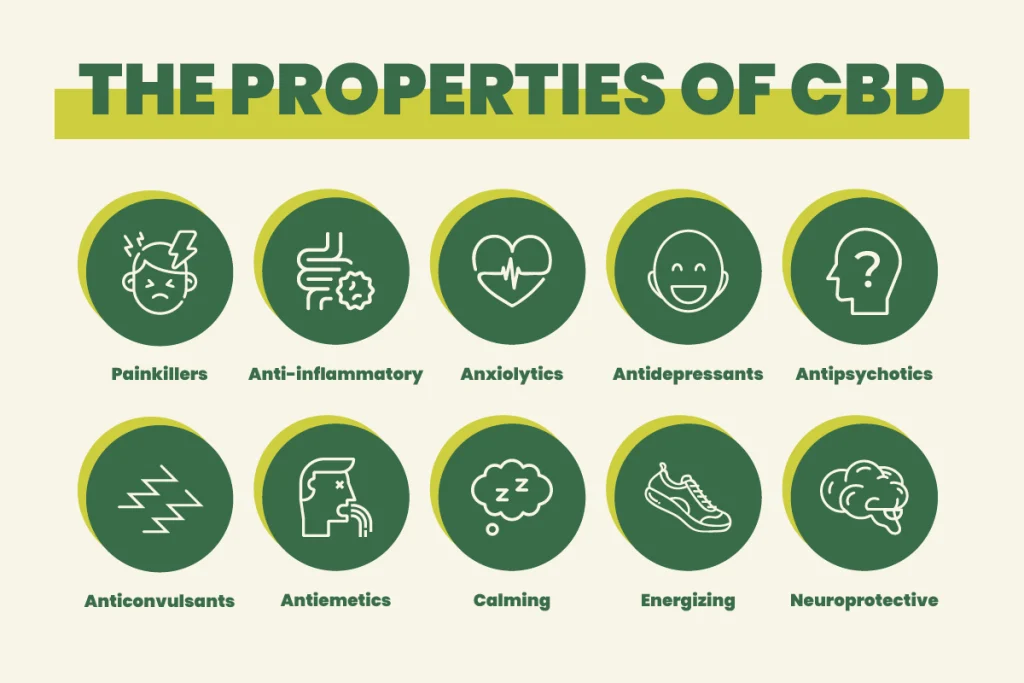
The importance of the relationship between CBD and THC
Research suggests that the CBD:THC ratio can significantly influence the user experience and therapeutic efficacy of cannabis. For example, a 1:1 ratio is often considered balanced, offering benefits from both CBD and THC without dominating the psychoactive effects. Some studies indicate that CBD may reduce or modify the undesirable effects of THC, such as anxiety and tachycardia, by acting as a CB1 receptor antagonist.
For those who are sensitive to the effects of THC or who seek therapeutic benefits without the alteration of consciousness, cannabis strains with a high ratio of CBD to THC may be more appropriate. These varieties may provide symptom relief with a lower risk of psychoactive side effects.
Research on the optimal ratio of THC to CBD, although begun in the 1970s, is still ongoing and further studies are needed to fully understand the therapeutic potential and effects of these cannabinoids.
The CBD:THC ratio is a crucial factor in tailoring the use of cannabis for therapeutic purposes. Users and health professionals must carefully consider this ratio to maximise benefits and minimise unwanted effects, always in compliance with local laws and under the guidance of a qualified physician.
Focus on the theme of legality
CBD is perfectly legal throughout the UK. Manufacturers and sellers therefore do not have to undergo any kind of restriction and can market all products containing CBD without any problem. Likewise, anyone wishing to purchase cannabidiol-based foods, drinks, creams, oils or body lotions is perfectly free to do so without fear of legal repercussions.
However, the main restrictions concern the possibility of selling and consuming items with a high concentration of tetrahydrocannabinol. The laws imposed vary from country to country. In the UK, for example, it is not permitted to market products with a THC content of more than 0.2%. It is the responsibility of the seller to ensure that the products comply with the current law.
In America, regulations governing the criminalisation of cannabis vary from state to state. Currently, 12 states have decided to legalise marijuana for medicinal purposes. In Colorado, for example, the sale of products containing higher percentages of THC is also taxed and regulated for recreational purposes.
-
Product on sale
 CBD Oil 15% (1500mg) Full SpectrumPrice range: £31.20 through £51.20From 1,71 €/gr
CBD Oil 15% (1500mg) Full SpectrumPrice range: £31.20 through £51.20From 1,71 €/gr -
Product on sale
 CBD Oil 25% (2500mg) Full SpectrumPrice range: £47.20 through £67.20From 2,24 €/gr
CBD Oil 25% (2500mg) Full SpectrumPrice range: £47.20 through £67.20From 2,24 €/gr -
Product on sale
 CBD Oil 30% (3000mg) Full SpectrumPrice range: £55.20 through £75.20From 2,51 €/gr
CBD Oil 30% (3000mg) Full SpectrumPrice range: £55.20 through £75.20From 2,51 €/gr
Why is CBD oil a good product?
Among the various products on the market, one of the most popular and versatile is CBD oil. A natural product with no side effects, it is particularly effective as a painkiller and neuro-protector, as well as a remedy against insomnia and as an accelerator during bone fracture recovery.
The reason for the potential of using CBD oil is due to the presence of numerous cannabinoids that interact and cooperate with each other. The combined effect of all these substances amplifies all the beneficial characteristics by no small margin.
Scientific research has in fact demonstrated the existence of the entourage effect, which addresses the impact of the combination of all the cannabinoids present within cannabis plants on the body. CBD and THC, therefore, when taken simultaneously, are able to bring twice as many positive benefits to the body.
In the Maria CBD Oil online store, you will find natural and strictly certified CBD oil alternatives. Check out our products to start familiarising yourself with the potential of these natural and beneficial substances.
 Contact us
Contact us 








